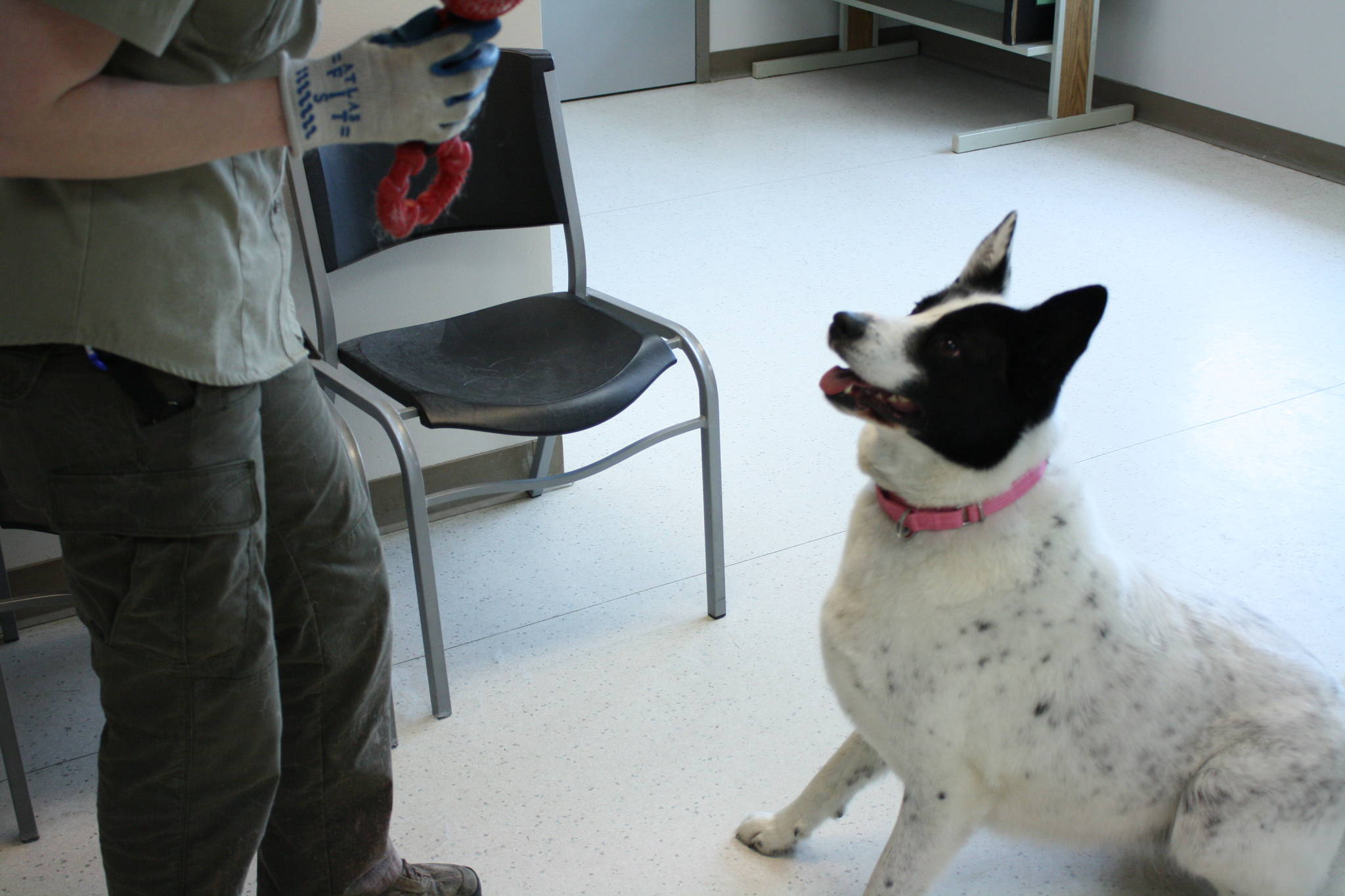The Kenai Animal Shelter will officially be taking on animals from both Kenai and Soldotna, after the July 3 Kenai City Council voted unanimously in support of a contract that provides animal shelter services for the city of Soldotna.
“I’m confident it will work fine and be advantageous for both cities,” Kenai City Manager Paul Ostrander said during the meeting.
The contract between the two cities will last a year and stipulates that the city of Soldotna will pay $42,000 to Kenai for the care of 150 animals, which is about the number of animals the city has taken in years past. Any additional animals coming from Soldotna will result in a $284 fee.
The city’s animal shelters care for all impounded animals, coordinate medical visits and provide education in the community about animal-related health and safety issues. The shelters also coordinate adoptions.
The agreement has been in the works for a number of months, Soldotna City Manager Stephanie Queen said.
“It felt important to me that if we were seeking to combine our services that the city fairly compensate Kenai for performing that service,” Queen said. “I think oftentimes these types of regional partnerships can be complicated. It takes a lot of work to put together. You have to a have a very strong relationship between the jurisdictions, but it often means we can do more together than either entity separately. I think this is an example of that, that I was happy to bring before the council.
“It has the potential to be a win-win for both communities.”
She said the city has been noticing a decline in the number of animals over the last several years. The number of animals Soldotna cares for could be declining due to an increase in public outreach and education regarding spay and neutering, Queen said.
“Last year, we took in just over a hundred animals at the Soldotna shelter and that’s about a third of the number from just a few years prior,” she said. “We’ve been aware of this downward trend.”
Queen said the Kenai shelter, which takes in just over 800 animals a year, does have the capacity to take on Soldotna’s animals.
Queen said she wanted to take a look at options to make sure the city is still able to offer a high-level of service, but in a cost-effective way. She reached out to Ostrander to see if consolidating the two shelters was feasible. Since then, both city councils have approved resolutions to engage in the contract to consolidate for a year trial.
“There were some times, just depending, where we don’t have any animals in the shelter,” Queen said. “That is difficult when trying to be conscientious about budget, in that to have a shelter we need to always be able to provide round-the-clock care.”
Through this proposal, Soldotna eliminated one position, which was lost through a recent retirement of an animal control officer. Queen said no person had to lose their job. By eliminating a position and closing down the shelter, Soldotna reduced about $100,000 in expenses a year. When payments to Kenai are calculated in, the city is expecting to save approximately $60,000 a year.
“The number is significant,” Queen said. “I think we’re always looking for ways to improve the level of service while also being budget conscious. This provides us an opportunity to do that.”
Soldotna will still fund a full-time animal control officer, who people can call and who will be available to pick up stray or loose animals. The Soldotna Police will cover for the animal control officer after-hours.
“Under this proposal, we will still have a full-time person who will be available in Soldotna,” Queen said.
During the July 3 Kenai City Council meeting, Ostrander said the city of Kenai would not need to increase staff at its shelter.
Queen said one change from the public’s perspective would be that they may have to go to Kenai to pick up their animal.
“The extra inconvenience with driving 10 miles to Kenai is something that would potentially change, that’s a change for sure,” Queen said.
She said the single location also offers benefits, like a centralized location for adopting animals.
“I’m hopeful that even though it would be an extra drive — if someone were looking to adopt or pick up their animal — I’m hoping that the benefits outweigh that additional inconvenience for folks,” Queen said.
The agreement is set for one year, to learn if the public finds value in the agreement, Queen said. Ostrander said the cities are transitioning the animals to the Kenai shelter over the next month.

